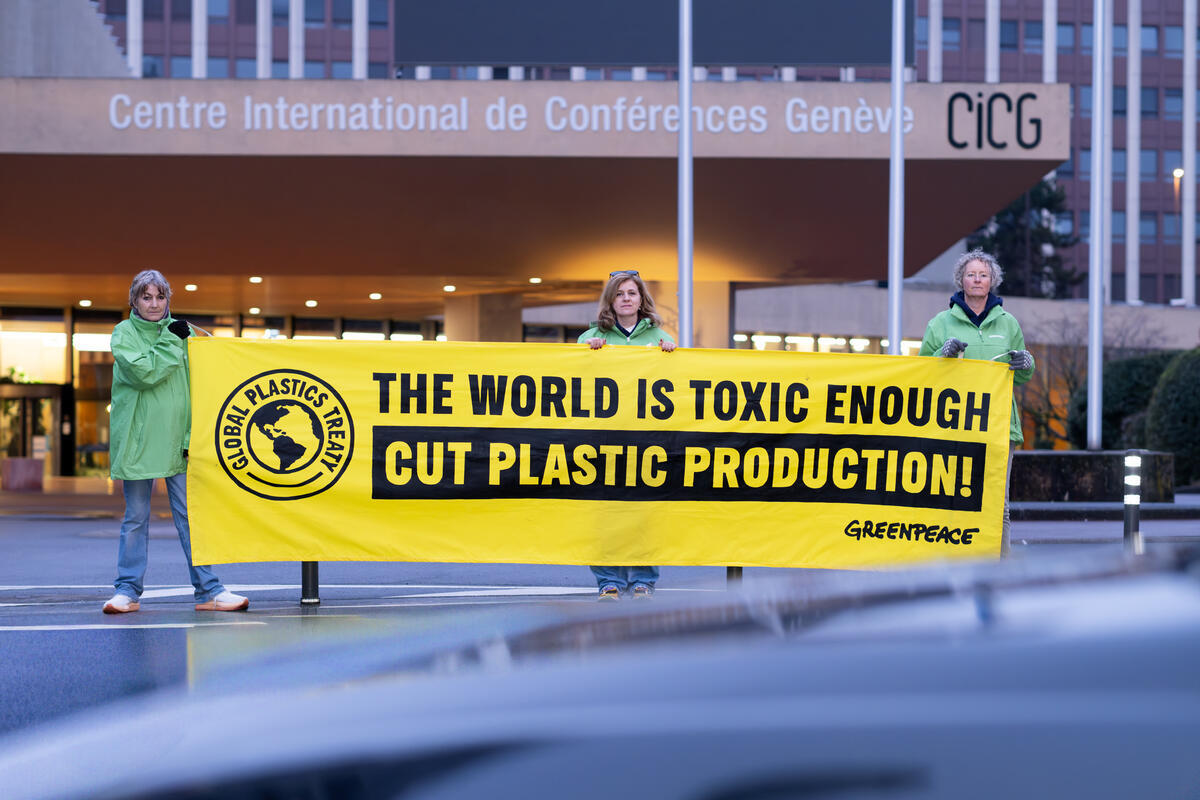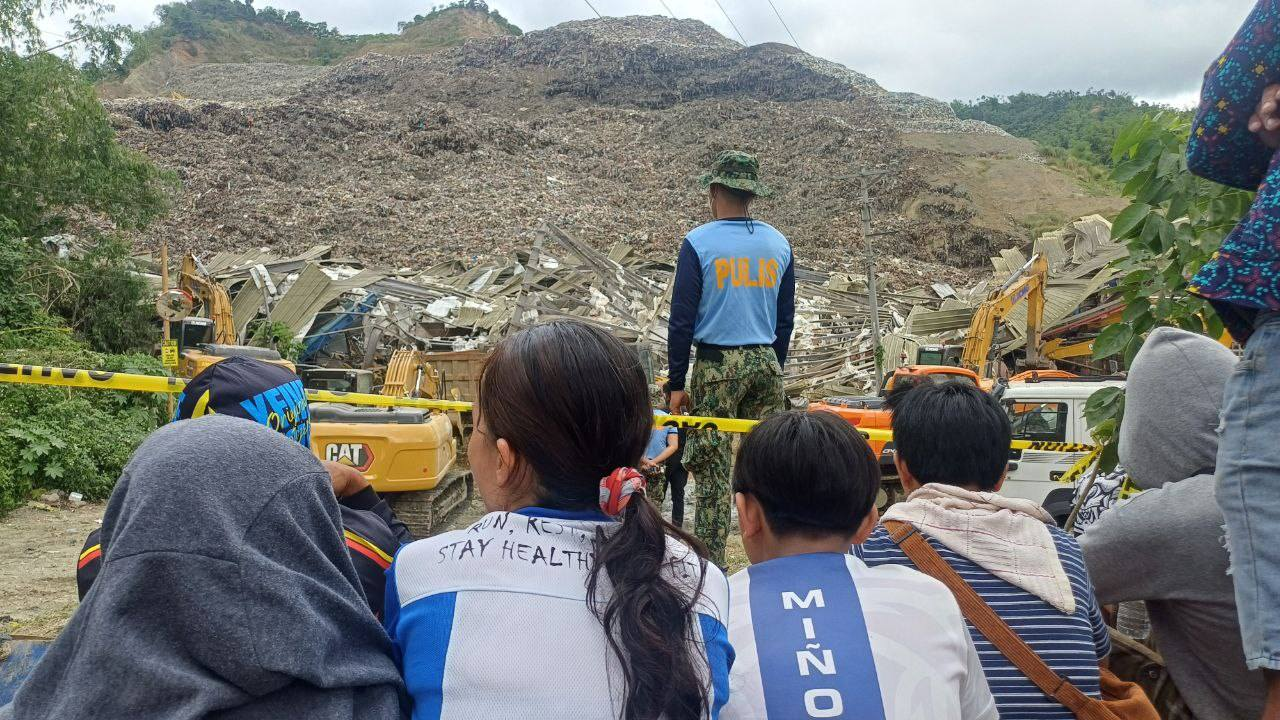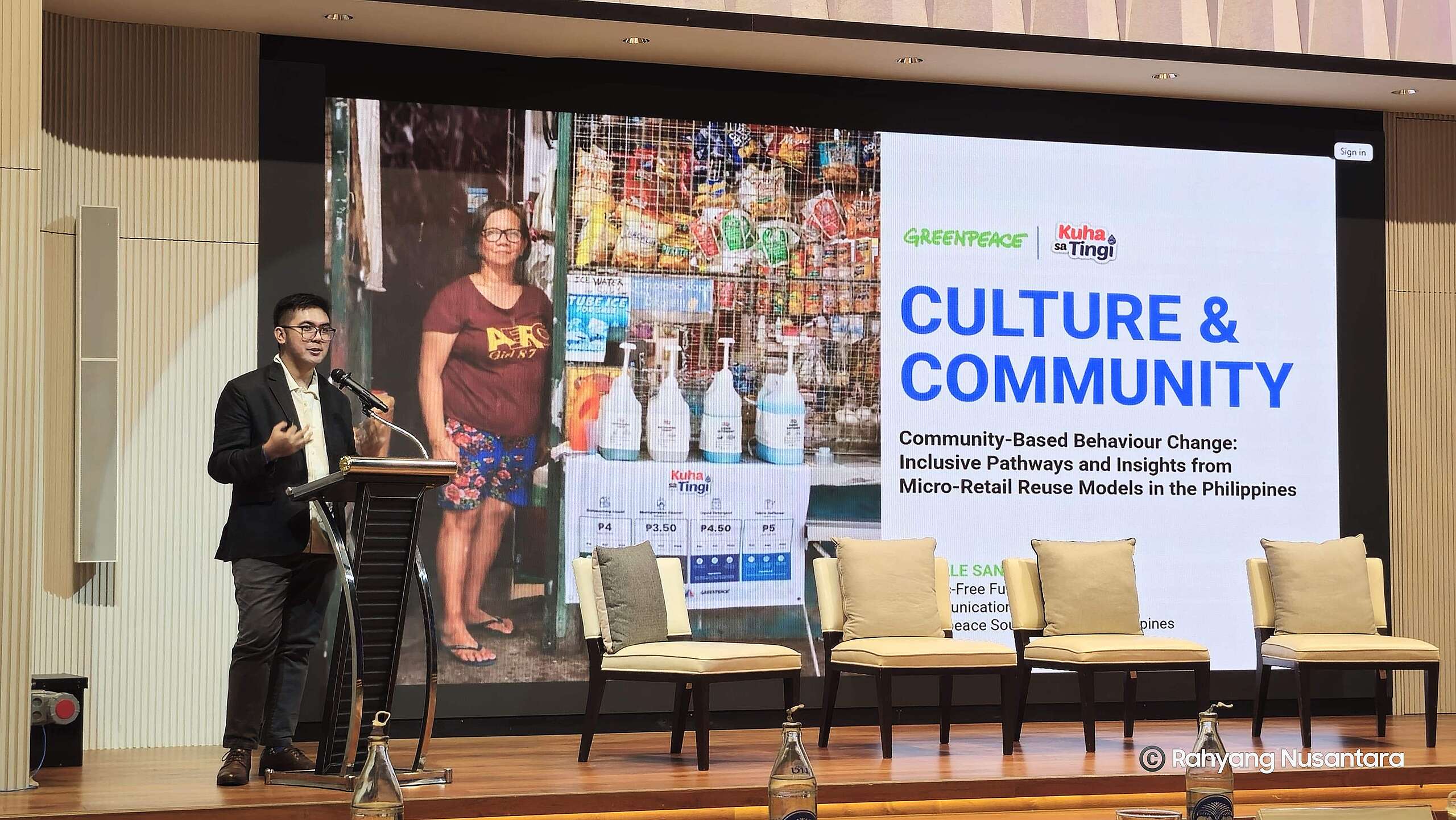QUEZON CITY, Philippines — Leading up to the celebration of World Environment Day, Greenpeace Philippines, Health Care Without Harm Southeast Asia, and Planetary Health Philippines come together to organize an online multi-stakeholder forum, titled TRUTH OR TOXIC: The Unfiltered Consequences of Plastic on Human Health, to discuss the health impacts of the plastic crisis and the systemic solutions to protect human and environmental health.
The plastic crisis poses a grave threat not only to the environment—polluting the land, air, and oceans—but also to the health of the people. Its presence in daily lives is becoming more pervasive, with several studies raising significant concerns about its health impacts throughout the plastic life cycle and value chain. Plastic threatens human health directly and indirectly. People can be exposed to hazards directly from using plastic products, for example, from chemicals and microplastics in sachets, plastic bottles, and IV bags; or indirectly, from air pollution, toxic pollutants, and climate change caused by making and burning plastics.
“Plastic is not just a waste problem. It’s also a health crisis hiding in plain sight,” said Marian Ledesma, Greenpeace Philippines Zero Waste Campaigner. “From the air we breathe to the food we eat, plastic is making its way into our bodies, posing serious health consequences.”
“We have already crossed the planetary limit for plastic in the environment. Massive amounts are now floating in our rivers and oceans,” said Dr. Renzo Guinto, convener of Planetary Health Philippines and associate professor at the SingHealth Duke-NUS Global Health Institute. “But the human boundary has also been violated. Microplastic is now detectable even in our bloodstream. We must urgently tackle plastic to safeguard both human and planetary health.”
Evidence on the presence of microplastics—tiny plastic particles less than 5 millimeters in size—in major organs of the human body[1] is alarming, from the brain and heart to even breast milk, semen, and placentas. Recently, researchers at New York University Langone Health released a report[2] finding phthalates used in common plastic products like food packaging have contributed to over 350,000 global deaths from heart disease in 2018. Adding to the worsening plastic problem is the increasing reliance of the health sector on single-use plastic products.
“Over the last six decades, healthcare systems worldwide have increasingly relied on single-use plastic products for being moldable, flexible, sterilizable, and disposable,” said Dr. Michelle Reyes, Health Care Without Harm Southeast Asia’s Sustainability Officer. “However, equating the widespread use of disposable plastics with their necessity in healthcare ignores mounting evidence showing single-use does not necessarily enhance hygiene, downplaying the potential health risks associated with plastics.”
Single-use plastic is undeniably a ubiquitous part of Filipino lives. Over 164 million sachets are used each day[3] in the Philippines and could contain any of 4,200 hazardous chemicals still used in various plastic products. These and the link between chemicals found in plastic and heart disease—the leading cause of death in the country[4] for many years[5]—should be a clear signal to reduce plastic production and use now.
Ledesma said, “To end plastic pollution and protect our health, we need strong laws that cut plastic production and hold plastic-producing corporations accountable. That includes strengthening the existing Extended Producer Responsibility (EPR) by setting clear plastic reduction targets. At the same time, we must invest in reuse and refill systems[6]—solutions that drive a slow and circular economy. These systems create jobs, reduce waste, and move us toward a future that works for both people and the planet.”
Institutionalizing and mainstreaming reuse and refill systems, coupled with reduction targets for companies, can significantly bring down plastic use and also ensure people still have access to essential goods in the transition away from single-use plastic.
Global problem, global solution
As the Global Plastics Treaty negotiations resume in August, the groups hope to see a global reduction target for plastic production, the establishment of reuse systems in countries, and the phaseout of common plastic products and chemicals of concern. They are calling for the Philippine government to hold its strong position in advocating ambitious measures to cut plastic production and lead by example in protecting the environment and well-being of its people. The groups expect such ambition to be reflected in national policies and laws as well.
Reyes said, “The health sector urges our delegates in the upcoming Global Plastics Treaty negotiations to champion an ambitious and just treaty that addresses plastic pollution and places health at the heart of the treaty. While the health sector may require special consideration, a blanket exemption would stall transition away from single-use and toxic plastics, hinder innovation, and impede the adoption of safer and more sustainable alternatives.”
The multi-stakeholder forum is presented by Greenpeace Philippines, Healthcare Without Harm Southeast Asia, and Planetary Health Philippines, and supported by the Miriam College Environmental Studies Institute and the Philippine Academy of Family Physicians – Special Interest Group on Planetary Health.
NOTES:
[5] Heart disease remains Philippines’ leading cause of death, says PSA | Inquirer News
For more information and interview requests, please contact:
Karl Orit
Communications Campaigner
Greenpeace Southeast Asia – Philippines
[email protected] | +63 9194571064 (Viber & WhatsApp)



